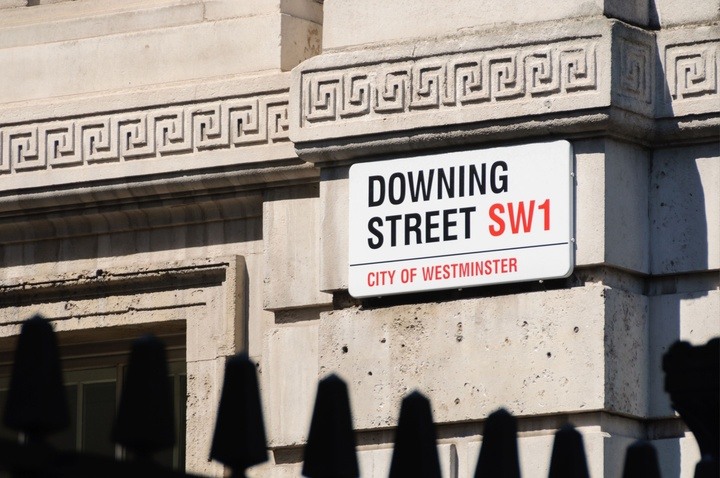Weekly Briefing: Government launched campaign to encourage tech investment, British ISA delayed & UK economy grows
This week we take a look at the Government’s just-launched ‘Science and Tech is our Superpower’ campaign which looks to drive investment into British scale-ups, the reasons behind a delay to the Chancellor’s recently announced British ISA, and more.
UK Economy
UK Economy Grew In January
- New figures from the Office for National Statistics (ONS) state that GDP is estimated to have grown by 0.2% in January.
- This follows a 0.1% fall in December 2023.
- The services sector was the largest contributor to the rise in GDP, with services output growing by 0.2% in January.
- The monthly rise was also helped along by a strong performance on the High Street and spending in supermarkets.
- In addition, construction output also grew by 1.1% in January.
- Liz McKeown, Director of Economics Statistics at the ONS, said: “The economy picked up in January with strong growth in retail and wholesaling. Construction also performed well with housebuilders having a good month, [after] having been subdued for much of the last year."
Investing
Government Launches Campaign To Encourage Investment Into British Scale-Ups
- The Technology Secretary launched the ‘Science and Tech is our Superpower’ campaign on Monday 11th March, aimed at driving up investment opportunities in scale-ups.
- Since 2000, Britain has produced 152 unicorns (companies valued at over $1 billion), more than France, Germany and Sweden combined.
- The Government states that without venture capital funding however, “the next generation of UK unicorns may be forced to look abroad for funding and even move away from the UK – or risk placing a cap on their growth, which hinders innovation and puts a lid on new jobs in the UK.”
- This new push from the Government to encourage private sector investment into high-growth companies follows the Chancellor’s Mansion House Reforms which are unlocking up to £75 billion for high-growth businesses like tech start-ups.
- The Science and Technology is our Superpower website highlights key metrics such as the UK ranking third globally for VC investment and having the largest tech ecosystem in Europe.
- Science and Technology Secretary Michelle Donelan said: “The UK has built a £1 trillion tech sector with a thriving start-up scene. With further capital, there is no limit to where British start-ups can take their ideas.
There has never been a better time to invest in British tech companies – with the UK leading on every key European metric and leading the world on emerging technologies like safe AI.
Our Science and Tech Superpower campaign drives home the message to investors that we need to seize the extraordinary opportunities here on home turf – or risk promising companies travelling to international competitors for funding.”
British ISA Faces Major Delay
- Revealed in last week’s Spring Budget, the British ISA – which will allow an additional tax-free £5,000 on top of the £20,000 annual ISA allowance for investors investing into UK equities – has already been delayed.
- According to Express, the new ISA product may not even come into effect until after the next general election.
- The Treasury has announced that the British ISA will be subject to a three-month consultation, with no specified timeline offered for its formal launch.
- The consultation invites views on how to design and implement the new ISA and will run until 6th June 2024.
- Reports from i suggest that Chancellor Jeremy Hunt had initially intended to introduce the British ISA immediately but reconsidered after being advised it would reduce his ‘headroom’, with ‘headroom’ referring to the amount by which the Government can increase spending or cut taxes whilst adhering to its own fiscal rules.
- Some experts have predicted that the earliest the British ISA will become available is April 2025, meaning it may not come to fruition at all depending on the results of the next general election.
Property
New-Build Homes Prove A Prominent Investment Focus For Investors
- UK Investor Magazine has called new-build properties “a beacon for investment in 2024”, citing a resurgence in buyer and seller activity.
- Recent data from Zoopla has projected a 10% rise in property sales this year, reaching a milestone of 1.1 million transactions.
- The magazine states that “this uptick in transactions is coupled with an interesting variation in price trends across the UK, showcasing regional resilience and opportunities for astute investment.”
- Figures from February showcase the renewed vigour in the housing market, as agreed sales rise by 15% and buyer demand is up 11% when compared with the same period last year.
- Analysis of regional growth areas suggest that Northern England, Scotland, Northern Ireland and Wales could be particularly astute targeted opportunities for investors, as “investors must navigate this environment with a blend of caution and opportunism, leveraging areas of growth and stability for optimal returns.”
Property sellers make £74k average profit in 2023, Zoopla Report Finds
- Zoopla have reported that in 2023, nine in ten people who sold their homes made 25% in profit, with the average seller of a £275,000 house earning £74,000.
- The average seller in 2023 put their property on the market after nine years.
- In the North East of England, the average seller made £30,000 in profit, working out at just over £4,000 for each year of ownership.
- Homeowners selling detached houses and bungalows made over £100,000 on average.
A Final Note
Whilst the British ISA looks to be delayed by at least three months, it’s announcement being followed closely by the launch of the Technology Secretary’s Science and Tech is our Superpower campaign serves to reiterate the Government’s dedication to strengthening UK businesses, with confidence in the quality of our tech start-up ecosystem proving particularly strong.
At GCV, we remain committed to providing the latest insights into the investment and wider economic landscape in order to support investors in making well-informed decisions when choosing where to allocate their capital.
If you would like to find out more about a number of tax-efficient investment strategies available to UK investors, discover our range of downloadable resources here.
%20(3)%20(2).jpg)








